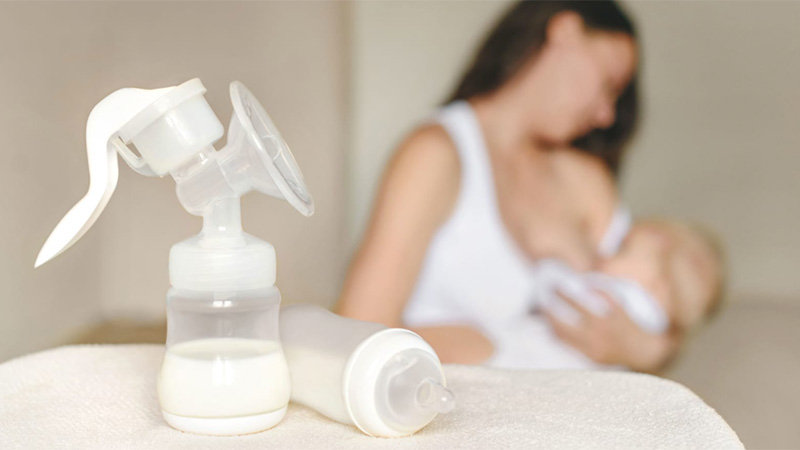Breast Milk
As a mother, its only natural that you want to make the best decisions for your new baby. That’s why breastfeeding is the natural choice for many women. For the first 6 months, your breast milk provides all the nutrition that your baby needs. If you are unable to breastfeed, or choose not to, your Doctor will advise you what to do.
While babies are born with a need to suckle, it may take some time for you both to get used to breastfeeding and there could be some discomfort. Just remember, it’s a learning process for both you and your baby as you establish a comfortable breastfeeding relationship.

How to Breastfeed
Hold your baby on his or hers side, rucked closely across your body. Provide support with your arm on the same side as you are feeding. Your baby should be lying “chest to chest, chin to breast” with the mouth facing your breast at the same level as your nipple. A pillow on your lap may help. Tuck your baby’s lower arm around you.
With your free hand, guide your baby to your breast. Touch the bottom lip with your nipple and wait for your baby’s mouth to open wide.
As soon as the mouth is gaped open, bring your baby quickly to the breast, making sure that your baby takes the nipple as well as a large amount of the darker part of your breast (areola).
As your baby sucks, you’ll notice that the mouth is wide open and both lips are opened out, or ‘flanged’ over the breast.
As an alternative position. You can hold your baby on the same side that you’re feeding. Tuck your baby under your arm, supporting the head with your hand and the body with your forearm.
Your baby will normally stop sucking and let go of your breast when satisfied. If you need to remove the baby from your breast, insert your clean little finger into the corner of the mouth to break the suction.
About Your Breast Milk
At first, your milk will be a yellowish liquid called colostrums. It’s rich in minerals and proteins and contains antibodies that help build your baby’s immune systems to resist infections and diseases. After a few days, your milk will change to a more expected white colour, although mature breast milk does not look the same as cows milk (which gets its whiteness from its tough curds).
Your breast milk vary in colour, often from one feed to another. Sometimes it can be watery looking, but it will still be filled with nutrition. As your baby grows, the composition of your milk will vary to meet your baby’s changing needs.
Your breasts produce milk in response to your baby’s sucking. Be assured that you can produce enough milk, as the more your baby takes, the more you will produce.
When your baby starts feeding, the sucking will be strong and fast as the flow of what is called fore milk begins. As the feed progresses, you’ll notice that the sucking slows and becomes more rhythmical, your baby settles and may even appear to be sleeping. This is when the nutritious hind milk that’s rich in fats and other nutrients is reached.
Breast milk lessens the risk of allergies, childhood diabetes and, as confirmed by the National SIDS Council, reduces the risk of cot death or Sudden Infant Death Syndrome. Breast milk also helps with resistance to infection, reducing the risk of otitis media, gastrointestinal infections and later heart disease, as well as enhancing eyesight, speech and jaw development and higher IQ potential.
Good for Baby, Good for You
Apart from giving your baby the best possible start in life and creating a unique loving bond, breastfeeding offers these benefits for mothers, too:
Breastfeeding can help you lose the weight you may have put on while you were pregnant.
It will help your uterus return to normal after childbirth.
Research has shown that by breastfeeding you are less likely to suffer osteoporosis or heart disease later in life. It may even reduce the risk of cancer of the cervix and breast.




Yes breastfeeding is a boon for Baby n Mommy. Every Mom must do this. WHO RECOMMENDS EXCLUSIVE BF TILL 6MNTHS. after 6mnths 1 shud introduced semi solids. I continued bf til 1yr in additional to semi solids.
Yes its important to baby n new moms…